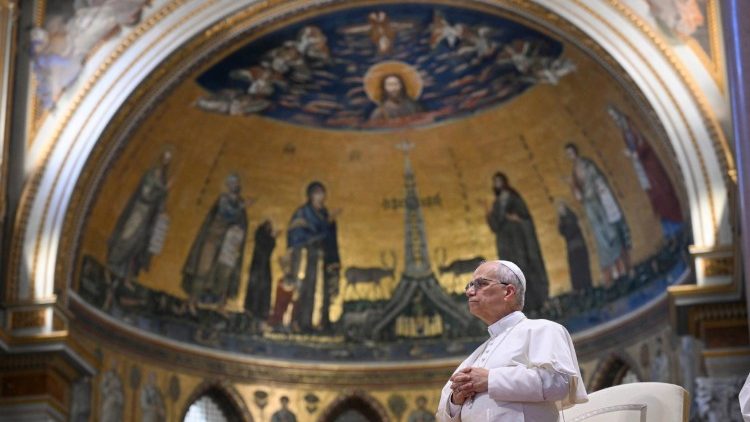Pope Leo XIV returned this Saturday to the Basilica of St. John Lateran, Rome’s cathedral, to preside over the Diocesan Assembly. There, as Bishop of the Italian capital, he made a clear call to renew pastoral action with a style marked by solidarity, listening, and co-responsibility among all the People of God.
From the beginning of his address, the Pontiff thanked those who support Christian life in neighborhoods and parishes, often bearing the burden of the most vulnerable on their shoulders. “In a time as complex as ours,” he said, “every gesture of welcome has immense value.”
Synodality as a common path
Inspired by the Gospel passage about the Samaritan woman, Leo XIV recalled that the Holy Spirit is the source of living water capable of quenching inner thirst. From this image, he called for the Diocese of Rome to become a true laboratory of synodality, that is, a space where participation, unity, and mission are palpable in the daily life of communities.
The Pope did not shy away from highlighting current challenges: the cooling of faith, social fragmentation, and increasing poverty. In response, he urged us to strengthen community ties and review structures that may have become rigid or isolated.

Youth and families take center stage
One of the central points of his speech was the need to give a more active role to young people, adults, and families within the Church. Leo XIV emphasized the importance of more effective participatory bodies and parishes that function not as islands, but as networks of communion.
He also emphasized that Christian initiation must be better adapted to adolescents, adults, and families seeking to integrate into the life of faith. To this end, he called for a renewal of catechetical styles, prioritizing closeness and openness.
A Church without prejudices, attentive to social reality
The Pope described the pastoral ministry he envisions for Rome as one that is “supportive, empathetic, discreet, nonjudgmental, and open to all.” In this regard, he listed the city’s social challenges: growing inequalities, hopeless young people, overwhelmed families, and crises ranging from psychological to migration.
Faced with this reality, Leo XIV insisted that the Church cannot limit itself to proclaiming speeches, but must offer concrete responses that convey hope and consolation. “Rome needs a Christian community that does not withdraw into itself, but journeys with its people and serves as a living sign of fraternity,” he concluded.